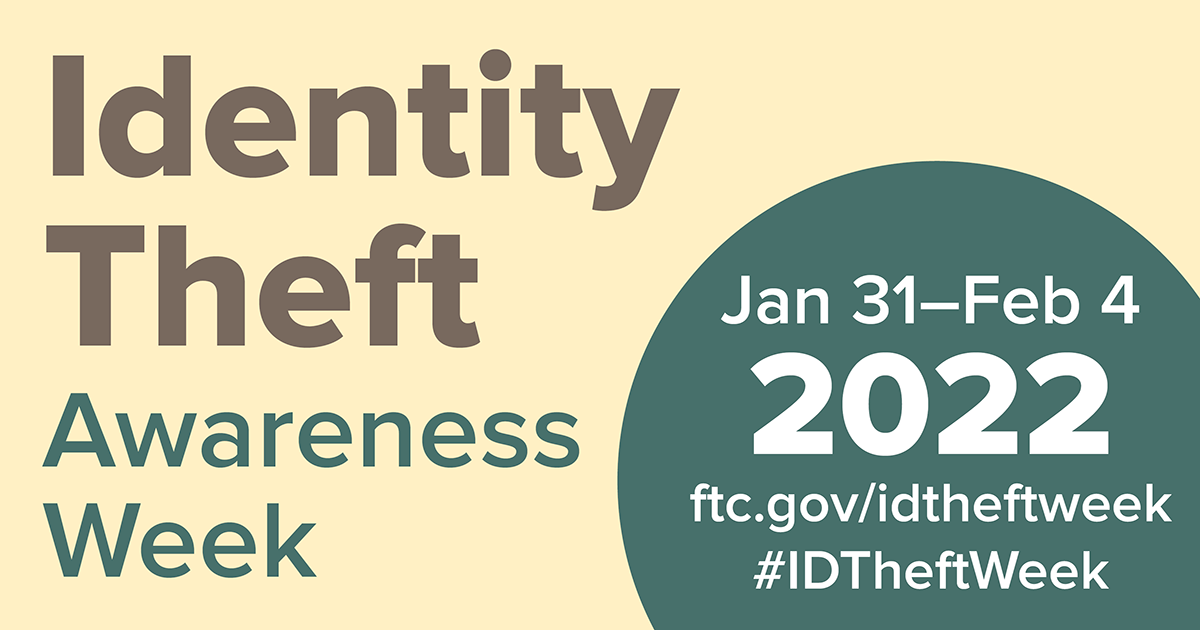 Today we’re kicking off Identity Theft Awareness Week 2022. Identity thieves have been busier than ever during the pandemic, with scammers and identity thieves after people’s information to apply for credit, unemployment benefits, file taxes, buy things, or get medical services. But there are some things you can do to protect yourself, and this week, you’ll learn how.
Today we’re kicking off Identity Theft Awareness Week 2022. Identity thieves have been busier than ever during the pandemic, with scammers and identity thieves after people’s information to apply for credit, unemployment benefits, file taxes, buy things, or get medical services. But there are some things you can do to protect yourself, and this week, you’ll learn how.
Each day this week, we’ll cover topics from the steps you can take to protect your personal information, to what to know about credit freezes and fraud alerts. Follow along with these alerts to help keep your money and personal information safe from scammers.
But wait, there’s more! This week, tune into free webinars, podcasts, and other events to hear experts discussing how to spot, protect against, and recover from identity theft. There’s something for everyone — including some events that spotlight resources for active duty service members, veterans, and older adults.
Start by joining a Facebook Live discussion at 3 p.m. ET today: Impersonator Scams & Identity Theft. You’ll hear from experts from the FTC and AARP’s Fraud Watch Network about impersonators who pretend to be from the government or well-known businesses, how they try to steal your information, and how to spot and stop them.
For details on the week’s webinars, podcasts, and Facebook Live programs, as well as how to participate, visit Identity Theft Awareness Week 2022. Then join us on Friday, when we’ll wrap up with a Twitter chat discussing identity theft trends, advice on spotting and avoiding identity theft, and how to recover.
Learn more about identity theft at ftc.gov/idtheft. And, if identity theft happens to you or someone you know, visit IdentityTheft.gov to report it and get a personalized recovery plan.
